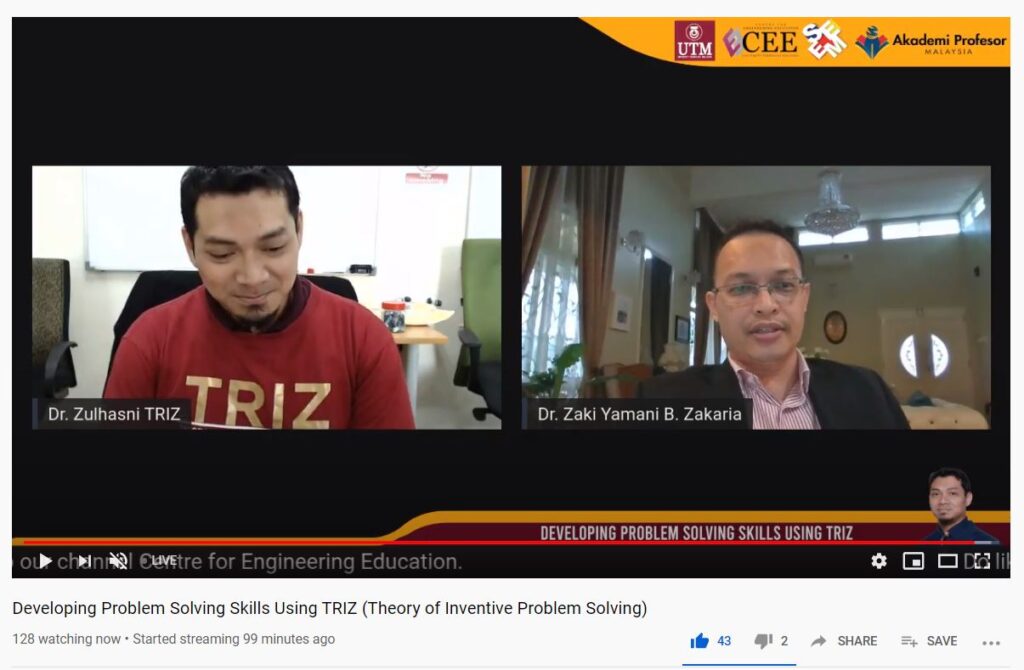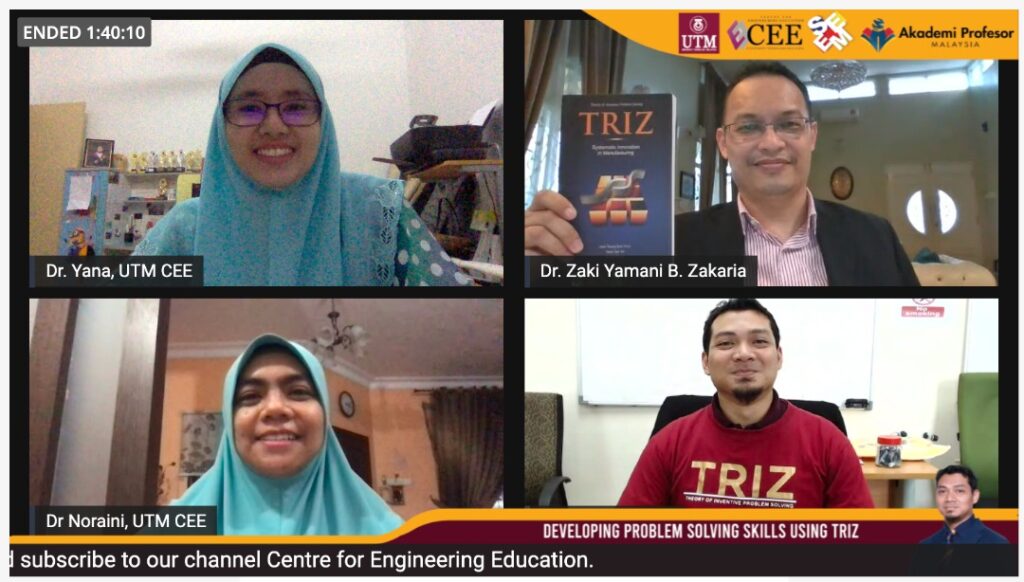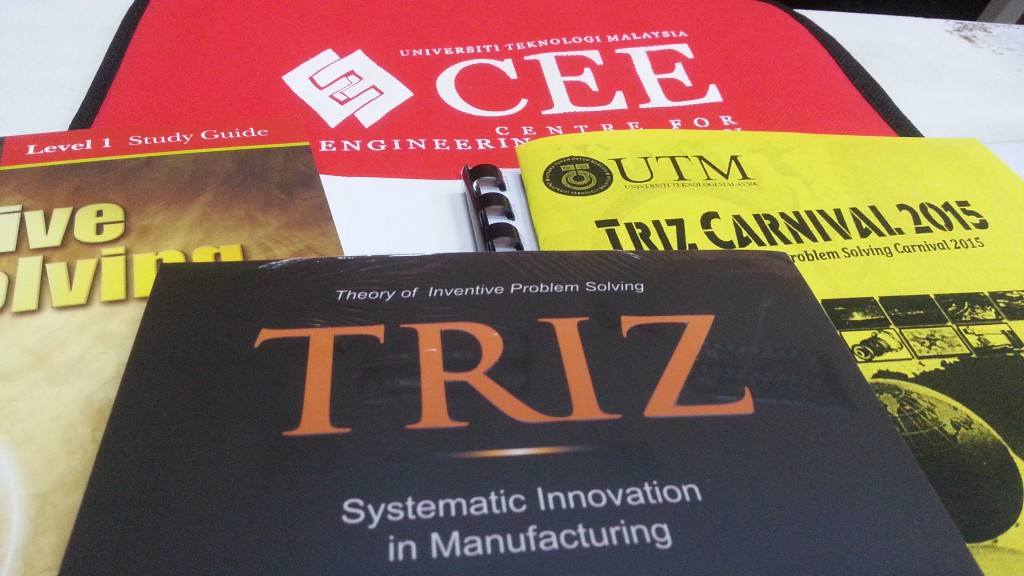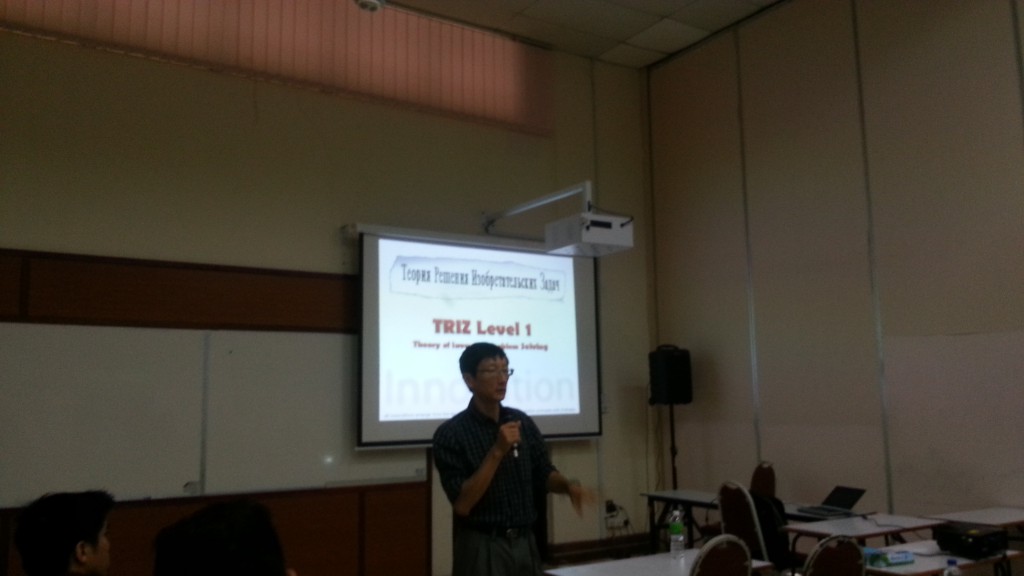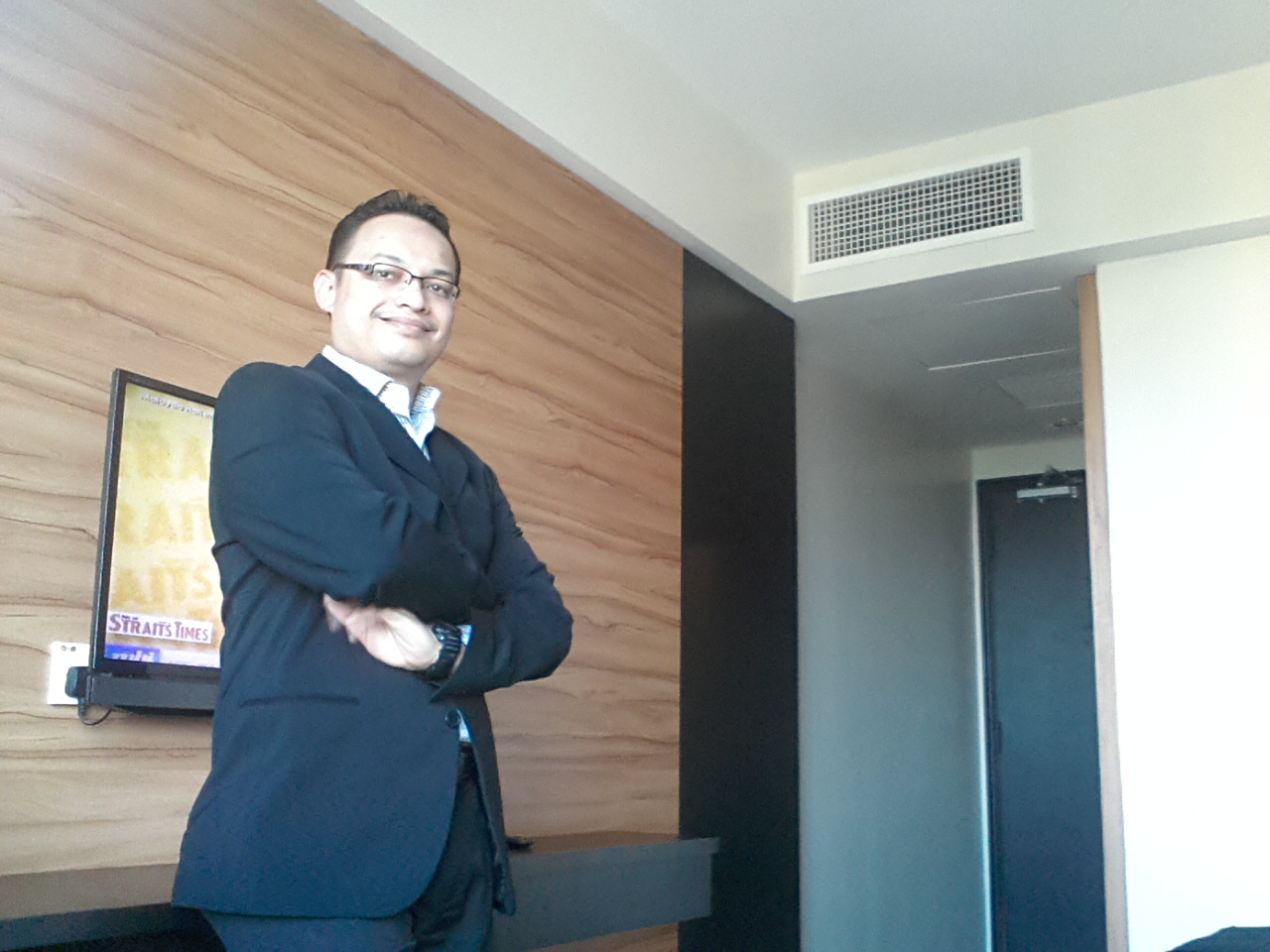DEVELOPING PROBLEM SOLVING SKILLS USING TRIZ? 🔎
Problem-solving skills will always be the core component of engineering. The questions on problem-solving revolves around: what is the first step engineers should take; what skills or tools are needed to solve engineering problems in industries; and how to achieve success through problem-solving skills.
This webinar will unveil the following:
1) Fundamentals of problem-solving skills,
2) The introduction to TRIZ for inventive problem-solving
3) The success and failure of problem-solving activities in industry and how TRIZ can help
4) a simple guide on how to start creating impact from problem-solving skills using TRIZ.
Catch the LIVE streaming on YouTube
🗓 17 August 2020 (Monday)
⏰ 2.30 pm
*Live Link: bit.ly/cee-utm *
=======================
Dr. Zulhasni Abdul Rahim is a National Innovation TRIZ Expert attached to the Malaysia-Japan International Institute of Technology (MJIIT), under Management of Technology Department. More than 17 years working in industries and his last post is under Transformation Division at PROTON Holdings. He has successfully leveraged and applied his TRIZ expertise and tools to achieve more than 10 breakthroughs in the area of
improving product value and cost reduction for his previous organization. Dr. Zulhasni is an active participant in the international TRIZ Competition and won two consecutive Grand Champions with a leading edge and innovative solutions. He is very passionate about TRIZ and constantly market the methodology through the ‘TRIZ Malaysia’ Facebook website that he hosted. He is a Mechanical Engineer by training from Universiti Sains Malaysia and a Ph.D. on TRIZ from Universiti Teknologi Malaysia.
